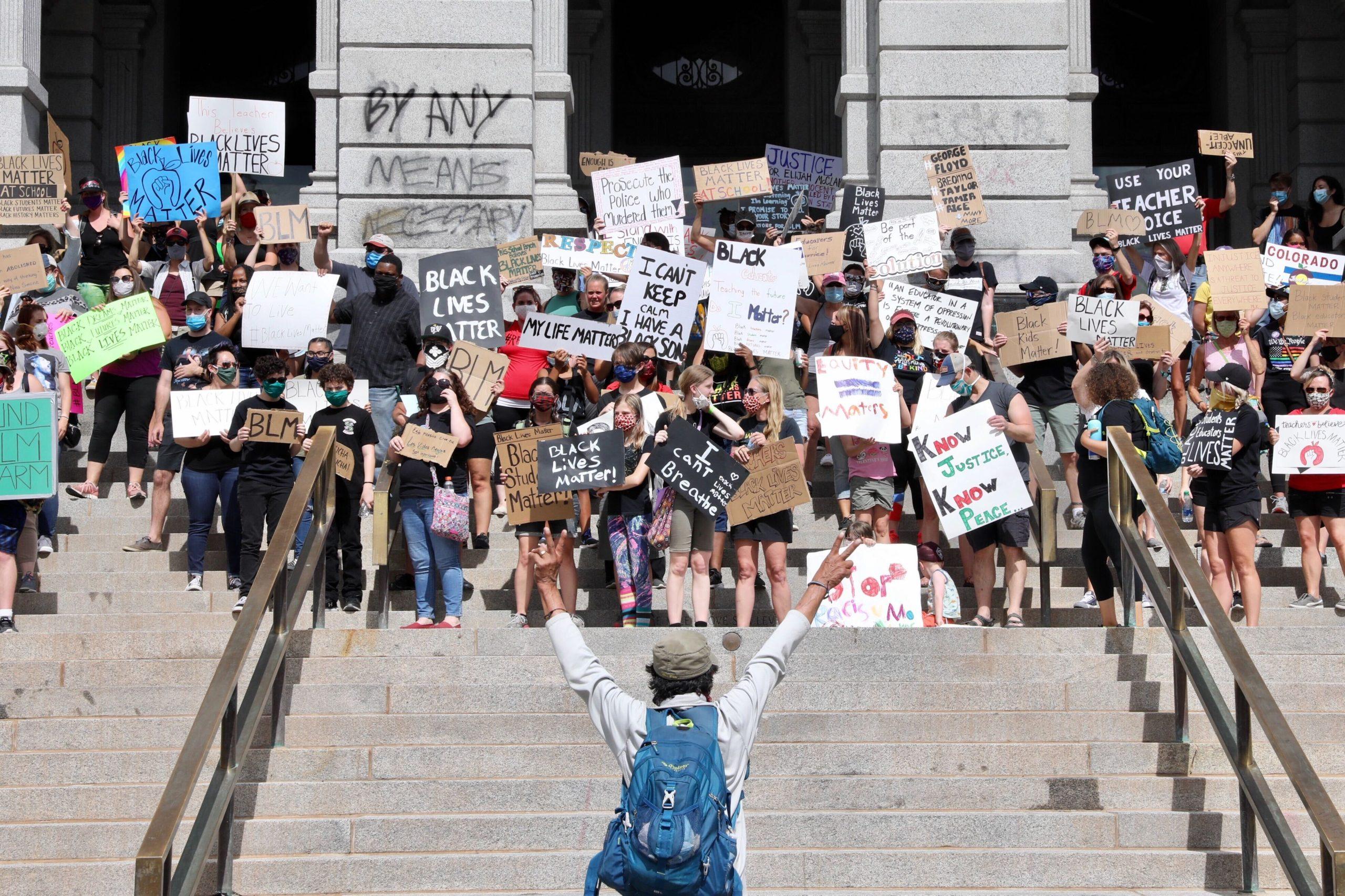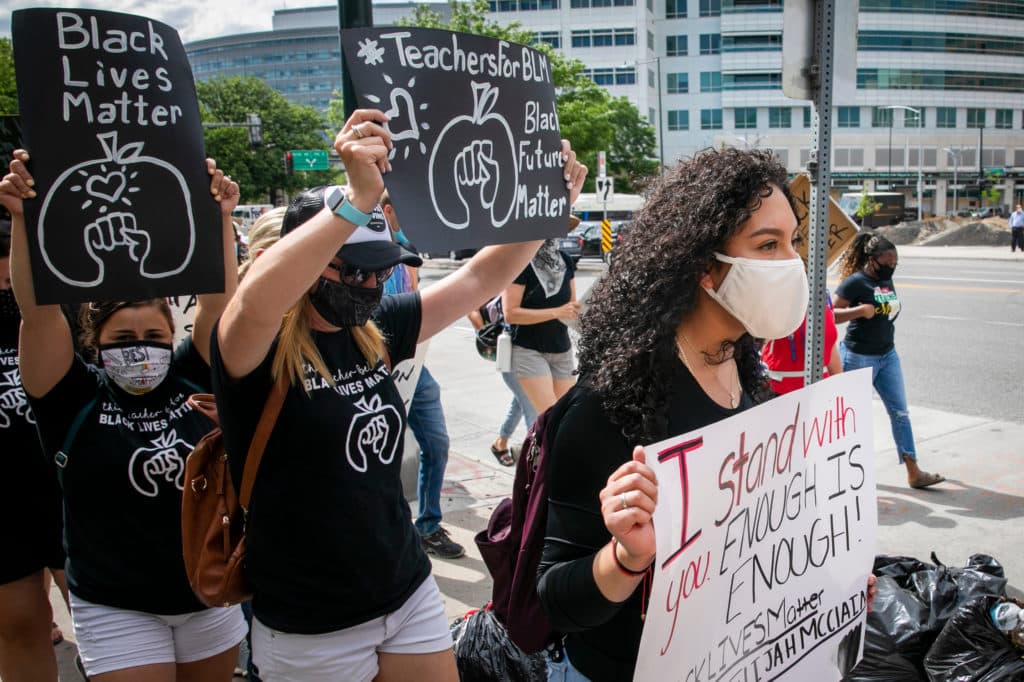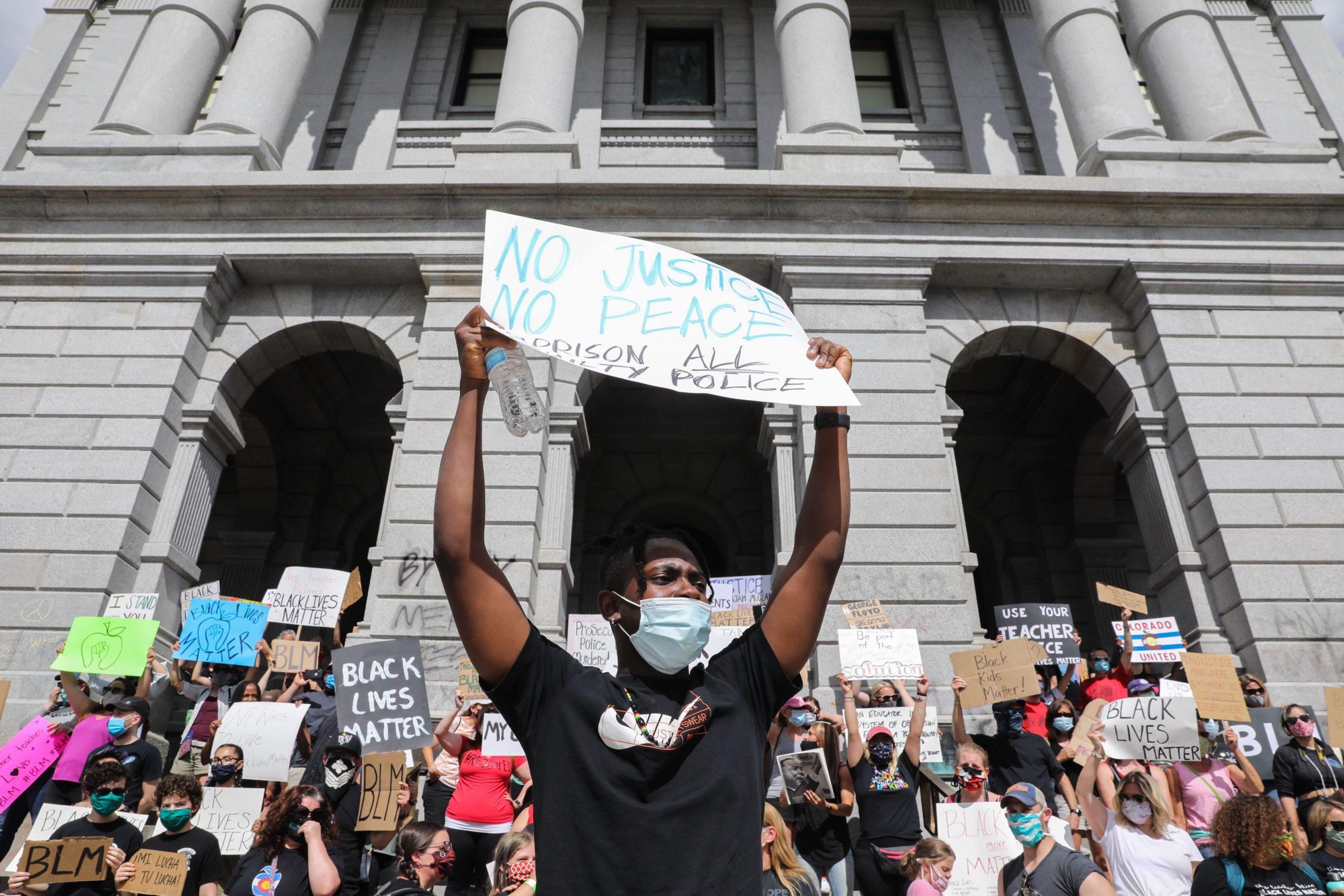On Thursday, more than a hundred people -- including teachers -- circled the Capitol, holding signs and chanting, "Black lives matter at school, black lives matter always."
It was part of an event organized by educators called "Colorado Educators Believe Black Lives Matter."
Both lead organizers, Zachary Rupp and Kendra Smith, admitted they weren't necessarily expecting a large turnout. The first-time organizers weren't even sure what they were going to chant as they marched from the downtown Denver Public Library to the Capitol.
They tried out a few things before landing on the chant they used as they arrived at Capitol. Their marching marks two full weeks of demonstrations in Denver following the death of George Floyd.
Smith, who teaches fourth-graders at Emory Elementary in Lakewood, said about 50 of the close to 150 marchers were teachers. Rupp, a Denver Public Schools music teacher currently on sabbatical, said many teachers recognize that school can be a safe place for many students. But there have been added challenges with students staying at home due to the pandemic.
"We thought it's important that they saw that we are -- especially being white teachers -- for myself I thought it was important for them to see that I am here and that I support them and I support all that is happening for change," Rupp said.
Ashley Tingle's son, Marcus Keller, is a seventh grader at McAuliffe Manual Middle School. She attended Thursday's march because she said as the mother of black children, she fears for their safety.
"I didn't use to think about it as much until George Floyd," Tingle said. "Now it's really starting to hit home, with all the protesting going on."

Dr. Martin Luther King, Jr. Early College senior Nadia Alvarado said her mother hadn't allowed her to go out to any of the ongoing demonstrations. Then she messaged her about Thursday's event.
"I just told her I wanted to do more for the black community as a Latinx female," Alvarado said. "It saddens me, that the black community is still dealing with oppression and police brutality and injustice in 2020."

Alvarado said the majority of her classmates are students of color and most of her teachers are white. She said she's seen teachers sometimes go "straight to" police or security on campus to deal with behavioral issues. But there are other times where teachers have been helpful, reaching out and sitting down to speak directly with a student.
"They don't really see what we have to deal with," Alvarado said. "Maybe we have things going on at home or things going on at school, or in general. I think they should (first) sit down and talk to the student."
The Denver Public School board meets tonight and will discuss removing school resource officers from schools as part of efforts, led mostly by board member Tay Anderson, to sever ties with the Denver Police Department. Black students make up 13 percent of the DPS student body, while Latinos make up 54 percent, according to Chalkbeat.

Columbian Elementary kindergarten teacher Kristen VanStedum said her classes are largely comprised of Latino students, though she also has some African-American students. VanStedum, who is white, supports the idea of getting police officers out of Denver schools, though she would still like some sort of security personnel.
She said every child who comes into her classroom gets treated as if they were her kid. She's reached the point where's she's teaching the children of her former students. She said she wants to read more about how she can be more culturally sensitive in her classroom.
"They need their voices heard, they need to feel safe," VanStedum said. "They need to feel important."














